The Post: A Riveting Drama of Secrets and Decisions in the Vietnam Era
A captivating and skillfully directed drama, albeit occasionally overly preachy, about the leaking of classified information during the Vietnam War era.
Disillusioned by the American government’s deception of its citizens amidst the Vietnam War, military analyst Daniel Ellsberg illegally copies the Pentagon Papers and, in 1971, provides them to The New York Times for publication. The journalists at The Washington Post can only envy their colleagues who are unraveling the “scandal of the century.” However, when a court prohibits The New York Times from further publishing the classified materials, The Washington Post gains its own access to Ellsberg’s dossier, facing a dilemma. If the newspaper publishes the Pentagon Papers, it will enhance its prestige, serve the nation, and potentially save thousands of American soldiers involved in a senseless war. But if President Nixon’s government sues The Washington Post for violating espionage laws, the publication will be destroyed, and all its employees will be out on the streets or in jail. Publisher Katharine Graham (Meryl Streep) and editor Ben Bradlee (Tom Hanks) must make a difficult decision.
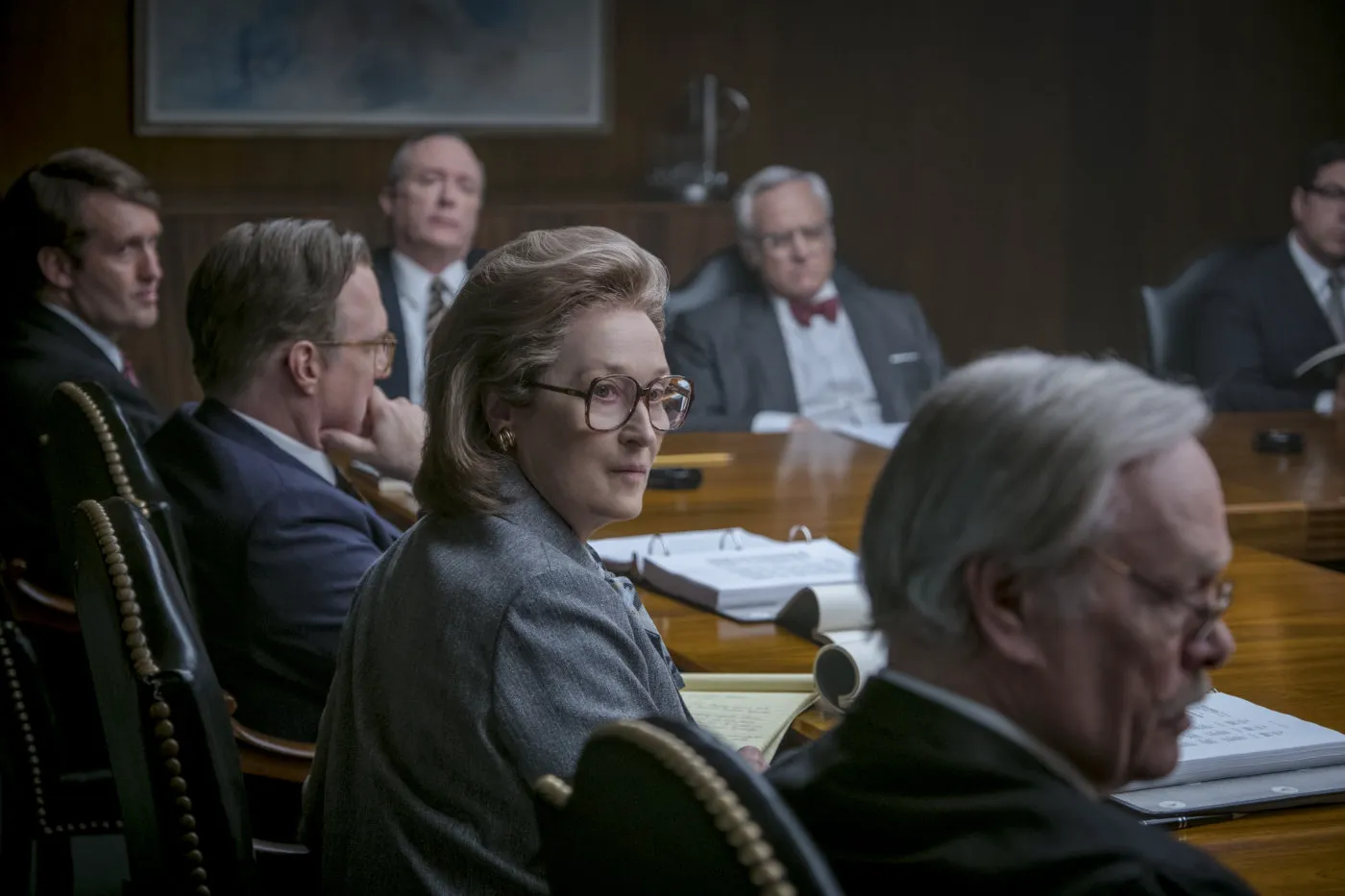
When Steven Spielberg released “Schindler’s List” in 1993, many were surprised that the famous Hollywood director made a film not about a flawless hero of World War II, but about a Nazi businessman who was complicit in war crimes. However, the dramatic essence of “Schindler’s List” was precisely that a man who had no compelling reasons to save Jews and who initially only profited from slave labor “saw the light” and became a righteous person. Spielberg loves sermons, but even more, he loves making dramatic films about radical transformations. And since the director became part of the American elite, he has been drawn to real stories about “big shots” who perform feats, even though they are not obligated to be heroic.
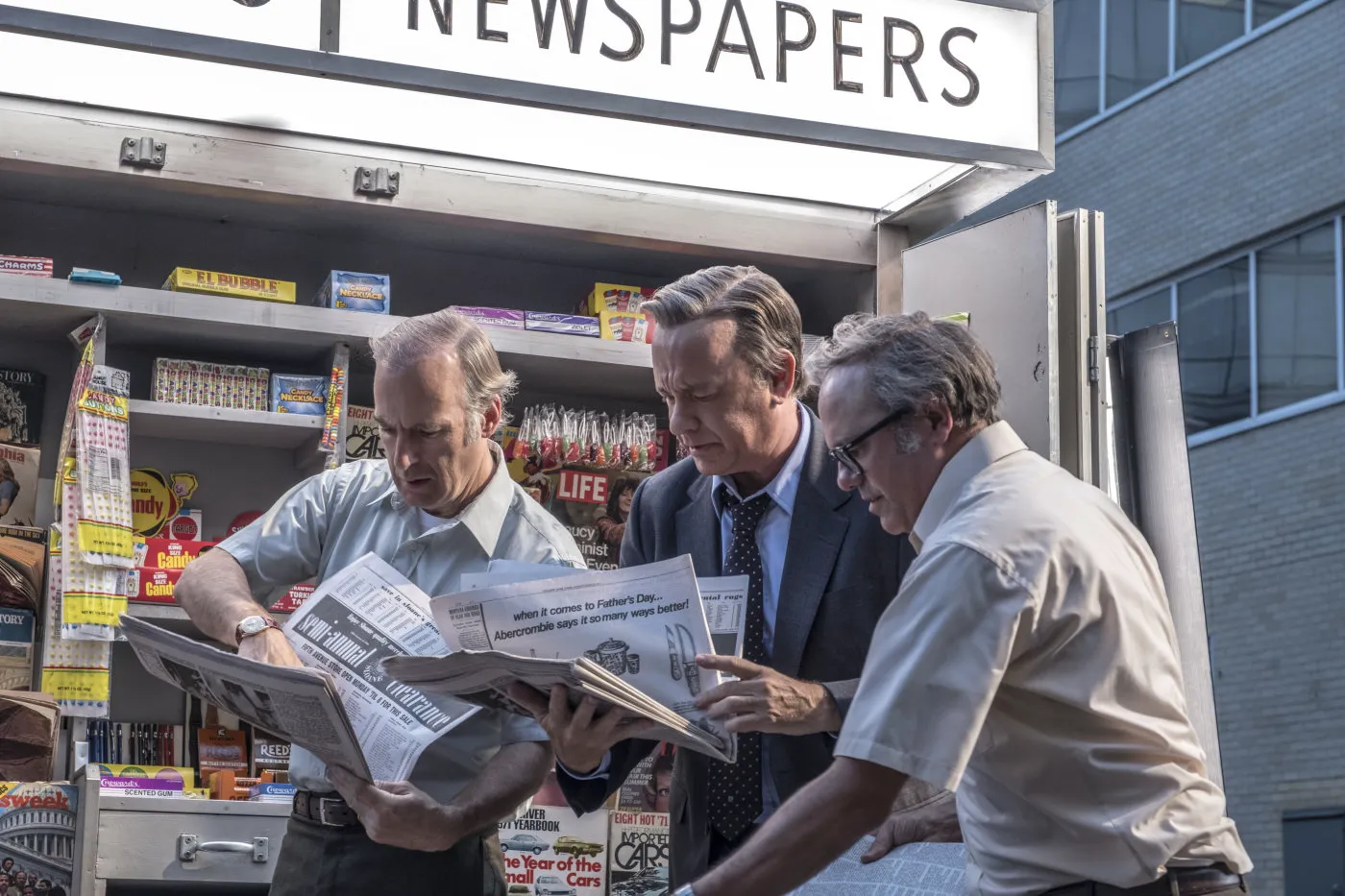
Daniel Ellsberg was prosecuted for disclosing classified information, but the charges against him were dropped because the FBI wiretapped his phone without a court order.
With this in mind, it’s easy to understand why “The Post” tells the story of Katharine Graham and Ben Bradlee, rather than Daniel Ellsberg, who only appears in a few scenes. It would seem that Ellsberg risked the most, and he initiated the scandal that the journalists only picked up. But the military analyst is not interesting to Spielberg because he is too heroic. A film about him would be a boring panegyric. Spielberg is attracted to emotional conflict and complex internal choices, and he finds them when he looks at Katharine Graham – an elderly socialite who inherited The Washington Post from her father and took over the publication after her husband’s death.
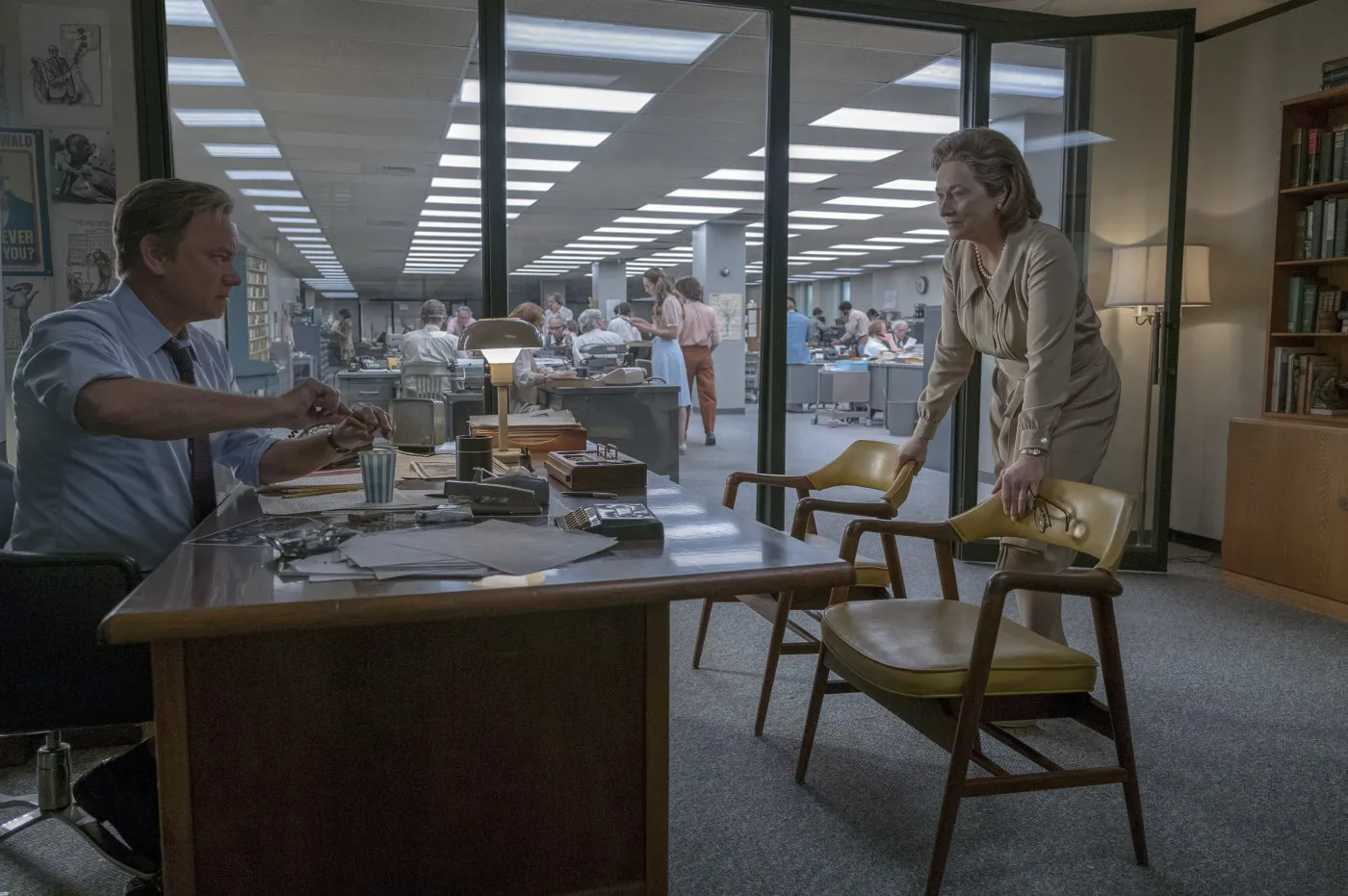
We are used to seeing Meryl Streep in the roles of strong women, but Graham is by no means forged from steel. For most of her life, she was a mother and housewife, and she was quite content with such an existence. Katharine was never prepared to run a newspaper – on the contrary, she was always told that it was not a woman’s job. So, having taken over the publication, Katharine feels like a schoolgirl who needs to take a Chinese exam after eight years of studying dressmaking. Even obvious decisions are not easy for her. What can we say about a fateful choice that can elevate The Washington Post or kill the newspaper!
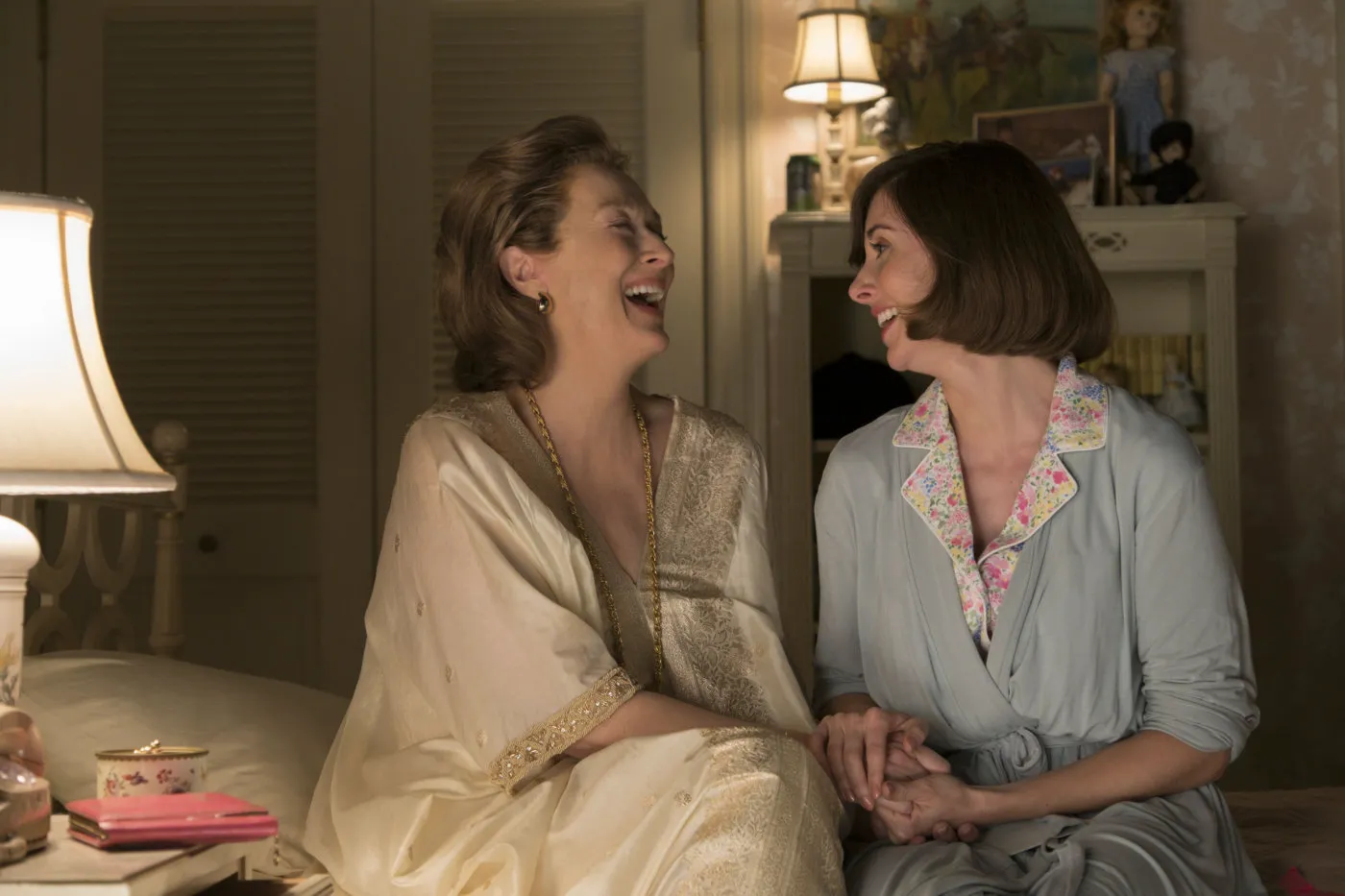
Moreover, the “crusade” against Nixon and the political establishment is also a blow to Graham’s personal connections in Washington circles. For Katharine, the figures in the secret dossiers are not faceless officials, but good acquaintances or even close friends. So, on the one hand, the woman is shocked by how many years she has been lied to about the state of affairs in Vietnam, and on the other hand, it is not easy for her to betray friendship, even if it concerns the fate of the nation.
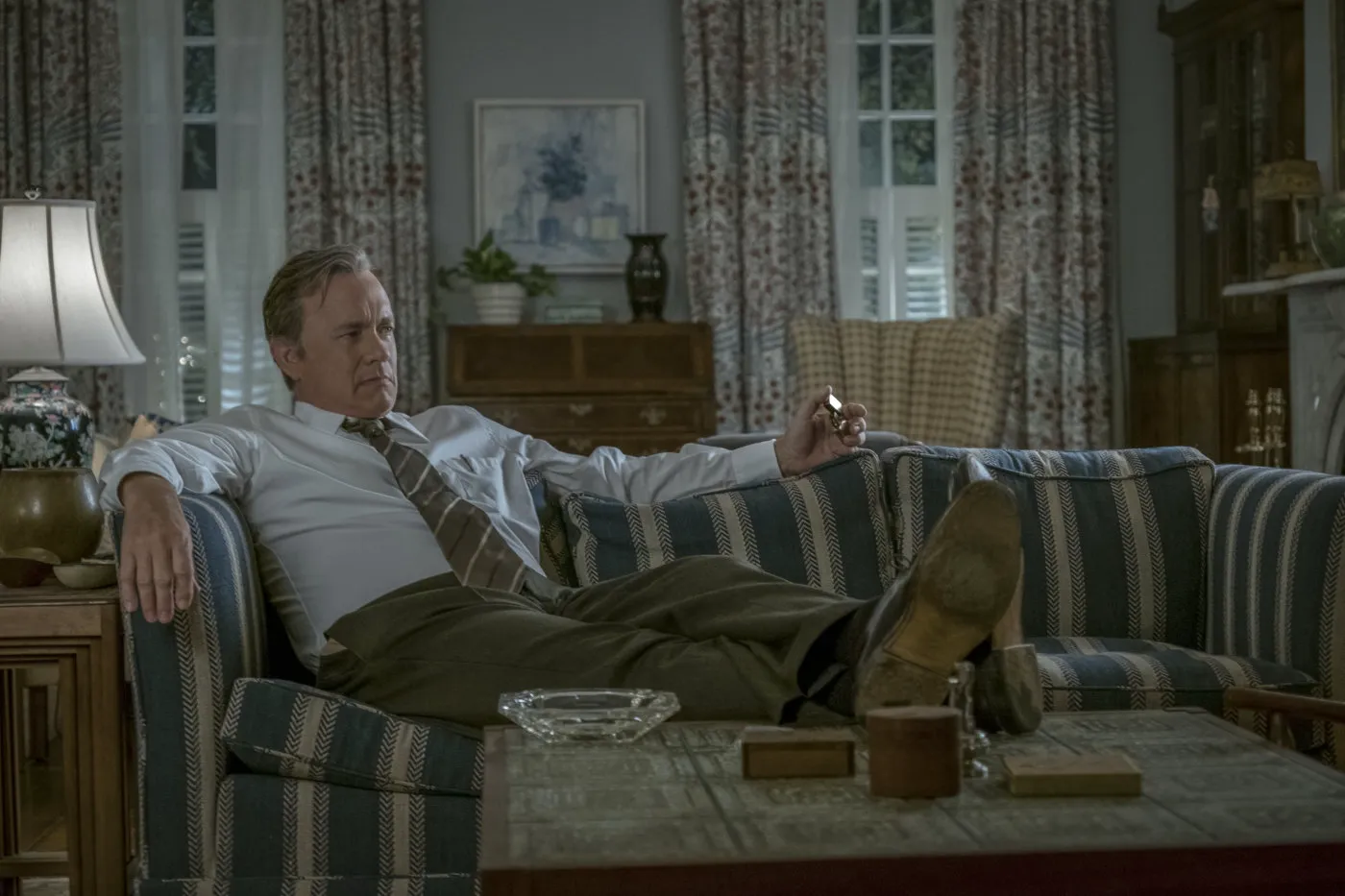
Ben Bradlee came from an aristocratic family. He was a direct descendant of several European rulers, including British King Henry VII.
Ben Bradlee finds the key decision of the film much easier. He is a professional journalist who puts the publication of an exclusive above all else. But still, Ben doesn’t want to go to jail in his old age and then look for a new job. In addition, he has his own connections in high circles, and he is not at all happy to cast a shadow on the late President Kennedy, whom Ben considered his close friend. Like Graham, Bradlee stands on a high pedestal, and in case of failure, it will be very painful for him to fall. At the same time, The Washington Post is by no means obliged to get involved in a war that is already being waged by the influential and powerful The New York Times. Many in Graham and Bradlee’s place would say: “Let others take risks – we are fine as we are,” and no one would condemn them. But in this case, Spielberg would not make a film about them.
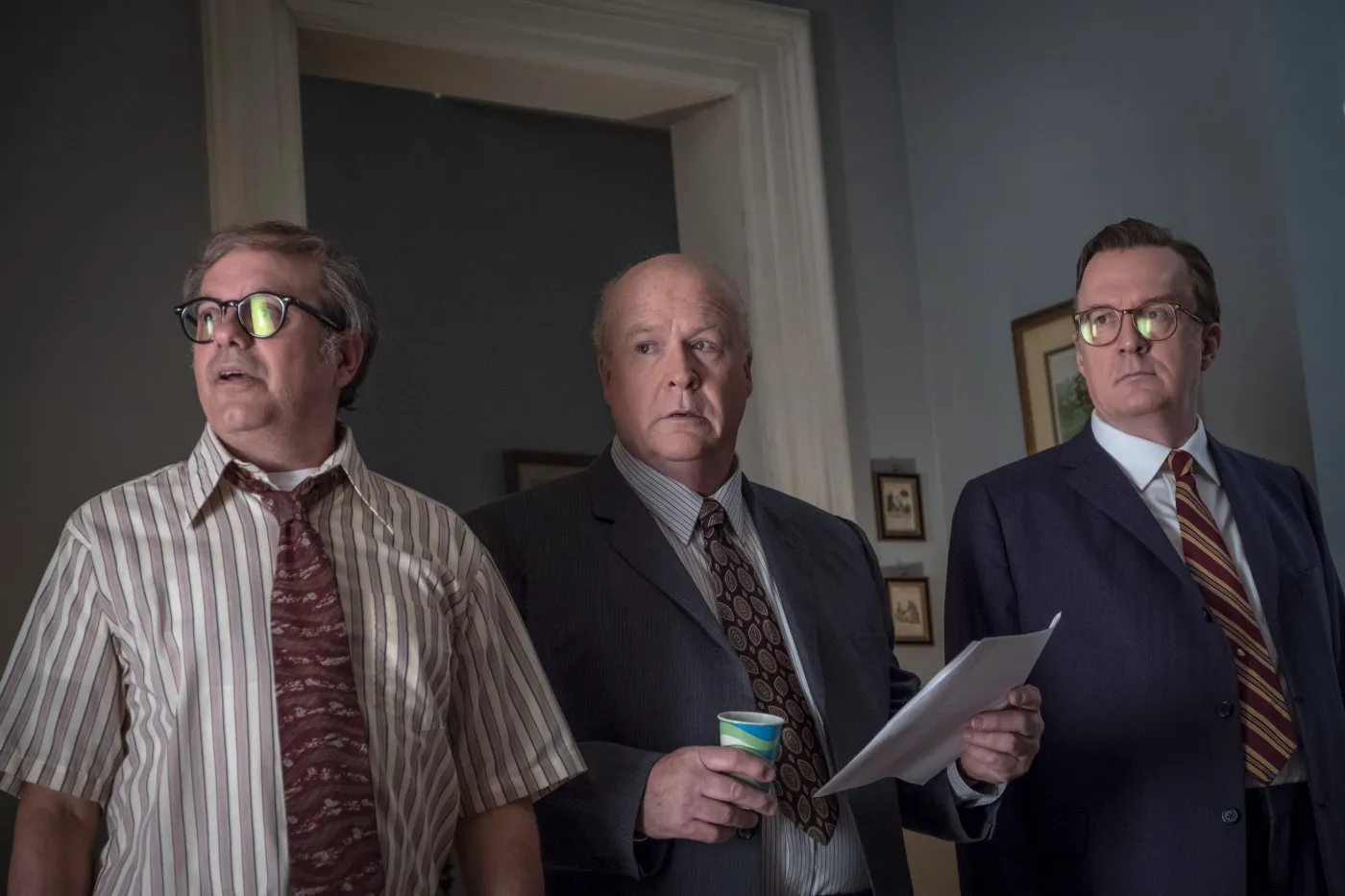
In fairness, the film exaggerates the drama of the situation. In reality, the likelihood that the Supreme Court would follow Nixon’s lead and restrict freedom of the press, contrary to all American tradition, was small. But still, it was different from zero, and the director is right to sharpen the conflict, which is not easy to feel from the outside, without being familiar with the American elite of the 1970s. In addition, the sharper the confrontation, the more pathetic the speeches of those who are trying to dissuade each other. And “The Post” is partly filmed so that the stars can strike a pose and say “the main words” about the importance of the press, about freedom of speech, and about the importance of truth for democracy. Spielberg loves to preach, but he rarely does it as openly and frankly as in “The Post.”
Of course, for us in Russia, this is not as relevant and “native” a film as it is in the United States. We have our own rules of power and the press, and our media can only dream of becoming the same “fourth power” that the American media sometimes were. But even if you don’t take “The Post” close to your heart and consider it as a museum tour, it is still a curious and skillfully told and played story. Although the picture is purely conversational, Spielberg was able to make it quite fascinating for anyone who is even slightly interested in the topics touched upon. And, of course, the director perfectly conveyed the feeling of time and place, and Meryl Streep perfectly portrayed all the emotional fluctuations of Mrs. Graham. Although it is not worth overestimating “The Post” – Spielberg’s “Lincoln” was stronger as a political film. In addition, the film is annoying when it sometimes becomes too primitive and preachy.